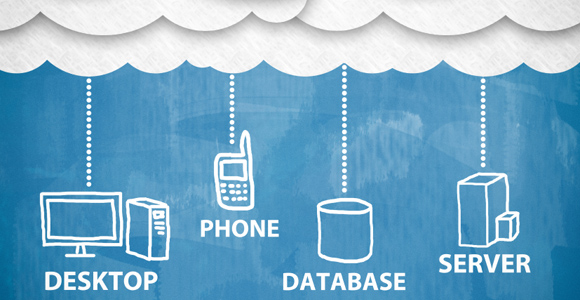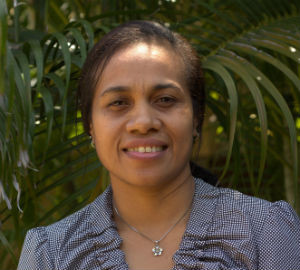New and emerging technologies have the potential to radically transform business operations, driving e-commerce, cloud computing and efficiencies in supply chains and manufacturing. Business Advantage PNG asks some technology experts how some of these technologies are and will be deployed in Papua New Guinea.
 E-commerce, mobile technologies, cloud computing and the Internet of Things (IOT) are increasingly topics not just for first world economies but for developing economies such as Papua New Guinea.
E-commerce, mobile technologies, cloud computing and the Internet of Things (IOT) are increasingly topics not just for first world economies but for developing economies such as Papua New Guinea.
‘Not only are these technologies disrupting (or radically changing) the traditional way of doing business, they are putting pressure on the traditional role of a Chief Information Officer,’ Robert Hillard, Deloitte’s Australia Consulting Managing Partner, tells Business Advantage PNG.

Deloitte’s Robert Hillard
‘CIOs need to harness emerging disruptive technologies for the business while balancing future needs with today’s operational realities,’ he says.
And that will have an impact on the IT worker of the future.
‘To tackle these challenges, companies will likely need to cultivate a new species of worker, with habits, incentives, and skills that are inherently different from those in play today,’ says Hillard.
E-commerce and mobile retailing
In Papua New Guinea, mobile phone usage stands at around 50% market penetration, with phone banking proving popular in rural and remote areas, reducing theft and boosting savings levels.
According to IT Security Specialist Robert Blackman, PNG, with its predominantly rural society, will be empowered as greater numbers of businesses and consumers avail themselves of e-commerce and mobile retailing, effectively extending trading hours from 8am to 4pm Monday to Friday to genuine 24×7 operations.

IT specialist, Robert Blackman
‘Whether PNG people are in their villages scattered across the country, on buses, at airports or at work, e-commerce and mobile retailing will provide them with easier access to their accounts, to check balances, view recent transactions, pay bills online, receive real-time alerts on any possible fraudulent activities, or if their account is low,’ he notes.
‘E-commerce and mobile retailing will reduce the cost of doing business, the price of goods and services, and reduce the cost and frequency that remote consumers have to travel to commercial areas to effect routine transactions.’
And, while e-commerce and mobile retailing may reduce staff levels in specific companies, overall they will increase employment, as more business ventures become viable and possible.
In a sign of the times, in June 2015, PNG Power announced it would no longer accept cash payments, and would only accept payments by cheque or mobile phone banking.

ICT Entrepreneur, Priscilla Kevin
PNG IT specialist Priscilla Kevin says mobile technology is given ordinary Papua New Guineans ‘the confidence to trade online which previously was known and accessible only by corporate businesses and few academic institutions and those with connectivity’.
But bmobile-Vodafone’s Chief Executive Officer, Sundar Ramamurthy, warns lower internet costs and faster data speeds are critical to the development of e-commerce.
‘Every country that has embraced the “digital age” has built fibreoptic infrastructure and allowed competition to flourish at the retail level,’ he says.
While a modest National Transmission Network is currently under construction in PNG, Ramamurthy feels there is a long way to go for PNG to be fully e-commerce-ready.
‘The cost of internet access and communications between major cities needs to be reduced by a factor of 10 from current levels to have a significant impact on society in PNG,’ he says.
Cloud computing
Cloud computing—storing, managing, and processing data on remote servers via the internet—will radically transform the PNG business landscape, predicts Blackman, as more business operations gravitate to using and storing their data, and using services, ‘in the cloud’.
IBM predicts by 2016, there will be one trillion cloud-ready devices connected to the internet. Work patterns and habits are changing, with more of us out of the office, working from home and checking emails and accessing data and services remotely. If you’re using a service like Google Docs, you’re already cloud computing.
‘Cloud computing will provide better security for PNG business from hackers and malware,’ Blackman told Business Advantage PNG.

The Internet of Things. Credit: Forbes
‘Data centre facilities in PNG are generally not up to international standards but cloud computing will eliminate the need to have world-class data centre facilities in PNG.’
Cloud computing will also reduce PNG’s need for expatriate workers, he predicts.
Internet of Things
While we’re currently preoccupied with connecting our phones and computers to the internet, the Internet of Things (IoT) refers to way in which the internet is used to connect any kind of object—a piece of machinery, a sensor like a thermostat or a video camera, for instance.
‘The number of connected intelligent devices will continue to grow exponentially, giving ’smart things’ the ability to sense, interpret, communicate and negotiate, and effectively have a digital ‘voice’,’ says Steve Prentice, vice-president of the US consumer research company, Gartner.
‘It is not outside the realms of possibilities in PNG for our fridge to inform us (based on location services) that we are near a supermarket offering specials on items we need to replenish at home,’ says Ramamurthy.
‘This requires a combination of a ‘smart fridge’, a smartphone and location services which are all available today.’
The Internet of Things is already with us, with many international companies which have a presence in PNG already using the internet to manage their assets.

bmobile’s Sundar Ramamurthy
GE, for instance, uses the internet to monitor and manage the industrial equipment it sells throughout its supply chain and even after a sale is made. The Internet of Things will lead to a world where almost anything, not just people, can be potentially connected to the internet, ushering in the age of the Industrial Internet.
‘Anything that can be measured, connected, controlled or instrumented in any form will be,’ predicted Benedict Evans, Partner at venture capital firm Andreesson Horowitz, at a conference last year.
With PNG’s economy becoming increasingly internationalised, the challenge for PNG-based businesses will be to have a plan to leverage these new technologies in pursuit of greater profits and productivity.
How businesses operating in PNG can benefit from emerging technology will be the theme of a keynote address by Peter Williams of Deloitte’s Centre for the Edge at the 2015 Papua New Guinea Advantage Investment Summit in Brisbane on 27 & 28 August.








Speak Your Mind